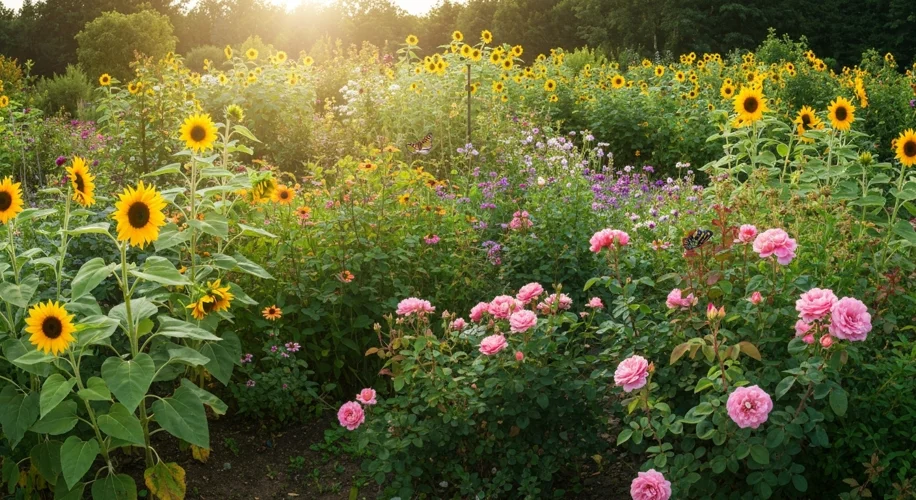Hey fellow gardeners!
Have you ever looked at your garden and wondered if there’s a way to get more out of your space, naturally? I know I have. Over the years, I’ve discovered a gardening secret that’s been around for ages: companion planting.
It’s basically the art of growing different plants together for mutual benefit. Think of it as a natural neighborhood watch or a helpful roommate system for your plants. Some plants can deter pests from their neighbors, others can improve the soil, and some even help each other grow better.
My Own Garden’s Little Helpers
I remember when I first started out, I was battling aphids relentlessly. My beans were constantly under attack. Then, I read about planting marigolds nearby. Skeptical, but willing to try anything, I dotted my bean rows with these cheerful orange flowers. To my surprise, the aphid population dropped significantly! The marigolds seemed to be acting as a natural repellent. It was a small change, but it made a huge difference.
Another favorite pairing in my garden is basil and tomatoes. Not only do they taste great together in the kitchen, but basil is also said to deter tomato hornworms and whiteflies. Plus, many gardeners swear it improves tomato flavor. Who am I to argue with that?
Carrots and radishes are another classic combo. Radishes sprout quickly and loosen the soil, making it easier for the slower-growing carrots to push through. By the time the carrots are ready to grow, the radishes are usually harvested, leaving a nice, welcoming bed for them.
Beneficial Plant Pairings to Try
Here are a few more ideas for beneficial plant pairings that you can experiment with:
- Tomatoes + Carrots: Carrots help break up the soil for tomatoes, and tomatoes can deter the carrot rust fly.
- Cucumbers + Dill: Dill attracts beneficial insects that prey on cucumber pests.
- Corn + Beans + Squash (The Three Sisters): This is an ancient Native American method. The beans climb the corn for support, the squash spreads out and suppresses weeds while its prickly leaves deter pests, and the beans fix nitrogen in the soil, feeding both corn and squash.
- Lettuce + Tall Plants (like Tomatoes or Sunflowers): The taller plants provide shade for the lettuce, preventing it from bolting in the summer heat.
- Rosemary + Cabbage/Beans: Rosemary is excellent at deterring cabbage moths and bean beetles.
Why It Works
Companion planting taps into nature’s own systems. Different plants have different needs and different ways of interacting with their environment. By understanding these relationships, we can create a more resilient and productive garden ecosystem.
- Pest Deterrence: Many plants release scents that confuse or repel common garden pests. Think of it as natural aromatherapy for your garden’s defense.
- Soil Enrichment: Legumes like beans and peas can fix nitrogen from the air into the soil, a vital nutrient for many plants.
- Attracting Beneficial Insects: Flowers like marigolds, alyssum, and dill attract ladybugs, lacewings, and predatory wasps that feed on garden pests.
- Improving Growth and Flavor: Some plant combinations are believed to enhance the growth rate or flavor of their neighbors.
Don’t be afraid to experiment! The best way to learn is by doing. Observe your garden, try different combinations, and see what works best for your specific conditions. Happy planting!

